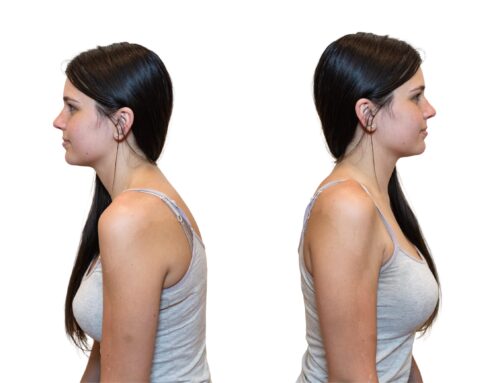Natural Shoulder Pain Treatment You Can Trust
If you have chronic shoulder pain or a frozen shoulder, you already know how debilitating it can be.
Anything from picking up your children to carrying groceries into the house can become an impossible task. Left untreated, deeply rooted shoulder pain (in some cases advancing to frozen shoulder) can take years to resolve.
If you’re relying on over-the-counter painkillers to help manage your shoulder pain, or even thought about something more severe like surgery, it’s time to consider a natural, effective treatment option instead.
Chiropractic care can change the way you think about having to live with shoulder pain, and here’s how.
Diagnosing Your Shoulder Pain
Shoulder pain can be extremely complicated to treat, and that confusion begins with diagnosis.
You almost certainly know how your shoulder pain feels, but traditional diagnostics are almost always ineffective at identifying the root cause of that discomfort. Frozen shoulder (medically referred to as ‘adhesive capsulitis’[1]) won’t show up on an x-ray or MRI.
Instead, the most fundamental way of identifying frozen shoulder is often in feeling the tissue and observing a patient’s range of motion. If you struggle to fully lift your arm above your head, feel a tightness in your shoulder that radiates through the neck and arms, or fight to flex your shoulder towards your ears naturally, you could be living with frozen shoulder.
The Stages of A Frozen Shoulder
Frozen shoulder typically exists in three stages: the freezing stage, frozen stage, and thawing stage. Each phase of shoulder pain can last for months (or longer) if left untreated.
In the freezing stage, the bones and ligaments that make up the shoulder joint start to become encased in connective tissues. You may start to feel your range of motion decrease as a dull ache encompasses the region.
And here’s where things get even more complicated. In the frozen stage, pain actually starts to decrease, but your range of motion may plummet. The slight stiffness of the freezing stage takes over the joint, making natural movement all but impossible. Not only are daily tasks hard to accomplish, but sitting and sleeping comfortably becomes compromised.
Finally, after months or years of discomfort, the body enters the thawing stage. Range of motion starts to improve and stiffness finally abates.
Chiropractic Treatment for Shoulder Pain
Most doctors aren’t sure how or why frozen shoulder occurs, and there isn’t always a traumatic injury we can point to help explain the sudden onset of pain.
At Grovetown Chiropractic we use a three-pronged approach at moving the body into the healing stages of shoulder pain naturally and effectively:
- Chiropractic adjustments: More than a solution for back pain, precise and controlled adjustments help to improve mobility in the joints and reduce inflammation in the affected tissues. Chiropractic adjustments can target the shoulder and collarbone to help restore range of motion and eliminate pain.
- Cryotherapy: Targeted cryotherapy which can be performed in such a way that stirs the body’s healing strength as well as to optimize the effectiveness of manual reduction efforts.
- Therapeutic exercises: Our mission is to get the bones moving so you can keep them moving long after leaving the office. Along with adjustments and therapy, specific at-home stretching exercises help restore functional mobility for long-term relief. After practicing them together during your visit, these exercises often require no equipment and can be performed wherever you are.
The Grovetown Chiropractic Approach
Your shoulder pain may not show up on an x-ray, but we know how deeply it can affect your ability to live and function normally.
With over 20 years of experience, our hands-on approach at Grovetown Chiropractic helps identify the root causes of your shoulder pain and joint stiffness and treats them at their core.
Schedule your consultation and adjustment today by calling 706-400-4333 or by visiting our homepage to schedule online.
[1] Mezian, K. (2023, August 28). Frozen Shoulder. StatPearls [Internet]. https://www.ncbi.nlm.nih.gov/books/NBK482162/
Written by: Donaid Seals D.C
Dr. Seals is a practicing Doctor of Chiropractic with over 25 years of experience caring for people across three states. His thinking is the product of his education, practice experience and many years in the natural foods and fitness industry. He has become living proof that old muscleheads don’t die-or fade away; sometimes they grow up to bring real-world expertise to the clinical picture. Traditional background information is available here.


